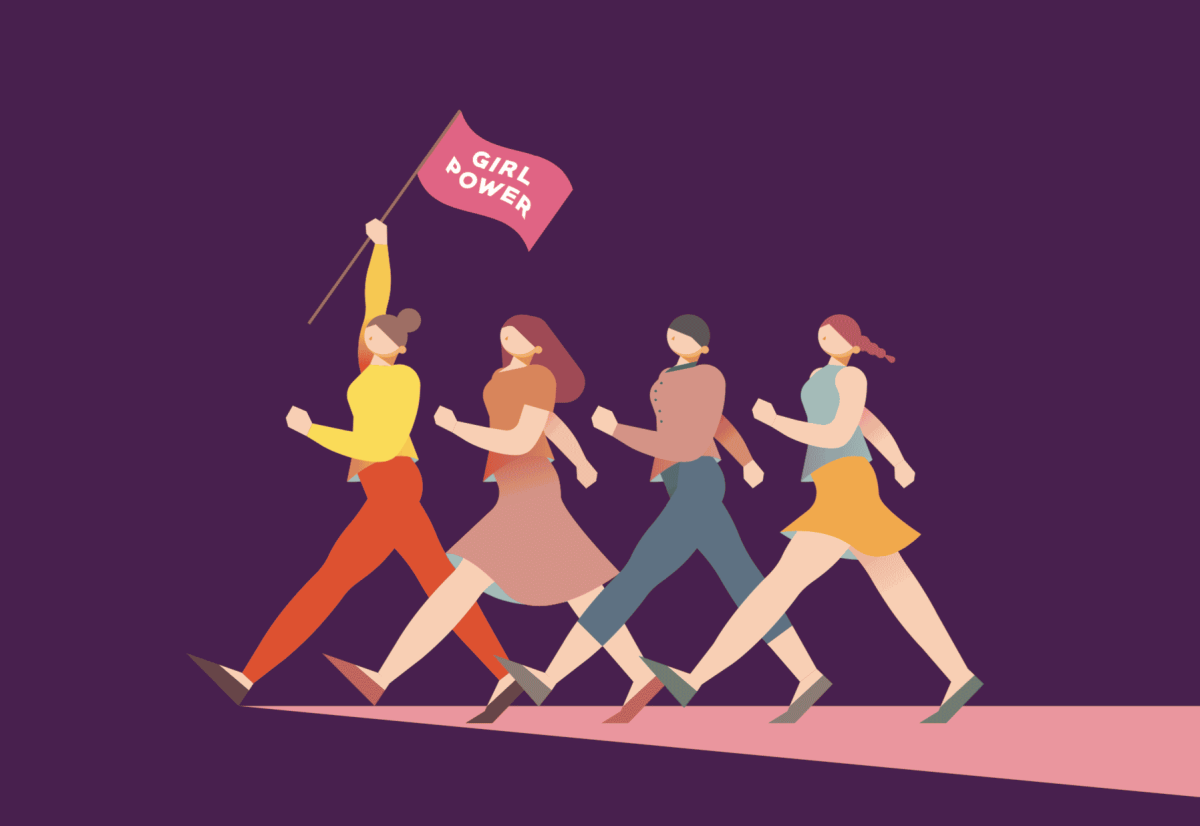Powerful women appear in blockbuster productions and mass media today, with many becoming household names and generational icons: the Kardashians, Greta Gerwig, Oprah, Margot Robbie, Taylor Swift — the list goes on and on. However, despite modern society’s realization that gender is often irrelevant in the face of capability, women are still so often portrayed through the male gaze. To gain respect and recognition, women are forced into uncomfortable personas, and yet it is called “girl power.” How are consumers supposed to recognize something that is so normalized, so seemingly empowering, yet so obviously demoralizing?
Within the media, female characters are often portrayed as either too perfect or lacking in personality. Take Wonder Woman (2017), where a mysterious and powerful—not to mention absolutely stunning— woman appears from a secret island and ends World War II. Obviously, the overall message is supposed to be “girl power” in that women can go far beyond where society tells them they can go (which is true); however, when other movies with extremely powerful female protagonists follow, it begins to imply that every woman must be as extraordinary as the women portrayed in all of these movies. It pushes the idea that women will only be enough once they obtain perfection: a standard that has long pitted women against each other and themselves. As Gloria said in her iconic Barbie speech, “It is literally impossible to be a woman… You have to never get old, never be rude, never show off, never be selfish, never fall down, never fail, never show fear… It’s too contradictory and nobody gives you a medal or says thank you!”
Beyond Hollywood, social media platforms often portray women in a similar fashion. Social media, once a place of connection, has now become a place of consumption. Constantly, women are presented on the internet photoshopped to perfection, enjoying lavish lifestyles. On the internet, sometimes it begins to feel like every successful woman looks and acts like what you’re seeing. Being human and making mistakes then begins to seem much more significant than it really is, as if the reason you might mess up is that there is something wrong with you. When unrealistic standards continue to be pushed on women, not only are we perpetrating harmful stereotypes and gender roles, but we are also actively encouraging women to never be happy with themselves. No one can achieve perfection, so why must women hold everything they do to that standard? The media plays a large part in shaping American culture, thus the way women are portrayed matters because it shapes the way generations of women will think and feel. Women are people, not products, and we deserve the space to be human.
In both media and real life, the strength and independence of women are too often defined by romantic relationships. This is not to say strong women cannot be in relationships, more so that they should not be valued and judged simply because of their romantic relationships. Jenna Ortega comments on this notion in an interview about her role in the hit Netflix series Wednesday. She elaborates on her own push-back towards the romanticization of her character Wednesday and how “it was really important to [her] that it seemed strictly out of pleasure or amusement, rather than severe interest or being boy crazy in some sense.” In the show, Wednesday is a unique and clever girl who chases down a murder case using her genius intellect, charming wit, and detective skills. Yet, towards the end of the series, she faces several romantic encounters with two of the boys at her high school. If the series was already thriving before romance was introduced, why did the writers feel the need to include a love triangle? The answer is simple: it is difficult for women to be seen as intelligent and respectable without being forced into the stereotypes of womanhood. For centuries women have been seen as dependent on men and unable to achieve greatness without the insertion of male validation.

Although Wednesday is clearly meant to empower young girls, it still perpetuates on the “boy crazy” idea that women need men to validate them. In contrast, consider all of the movies and shows that star men who are not dependent on women for validation: James Bond, Mission Impossible, Magnum PI, The Social Network. These characters get to be intelligent and witty without the burden of affirmation from their peers because they are simply awed and respected as the people they prove themselves to be. James Bond does not need to be in a relationship for his undercover spy work to be considered entertaining or awe-inducing. Women, on the other hand, are reduced to romance.
This needs to stop. Both writers and viewers need to realize the impact that the characters presented on screen have in real life; for if women continue to be depicted in a way that is demoralizing, and built on dependent relationships, what kind of message does that spread to the young girls and women of today?


